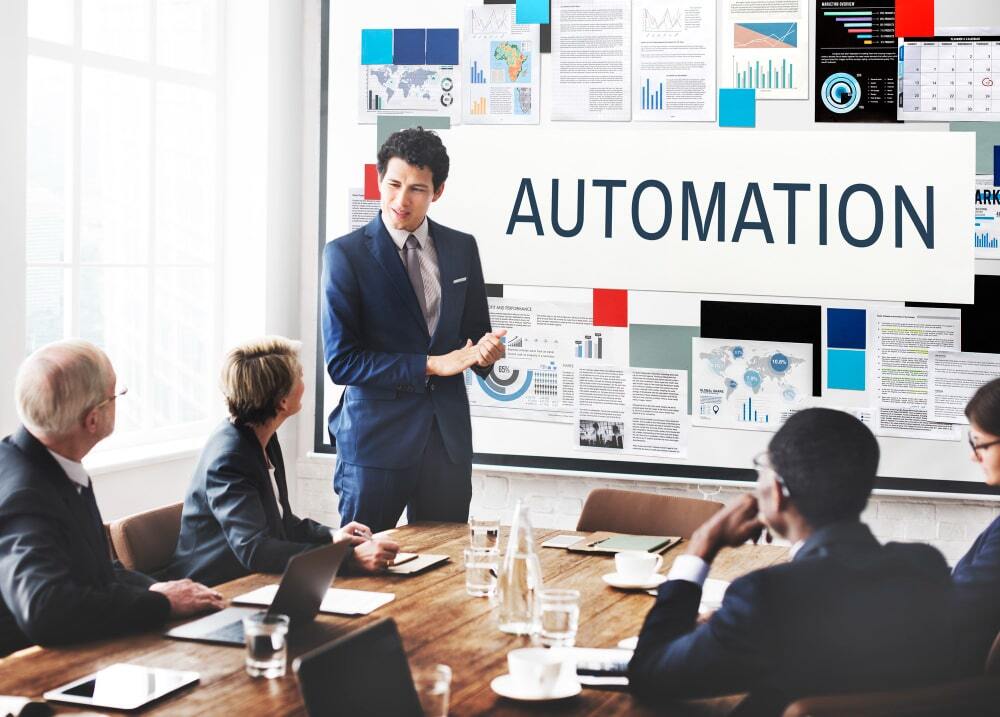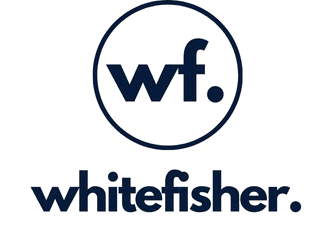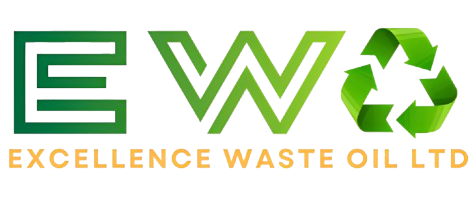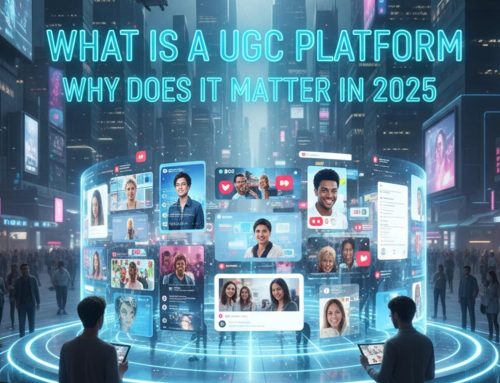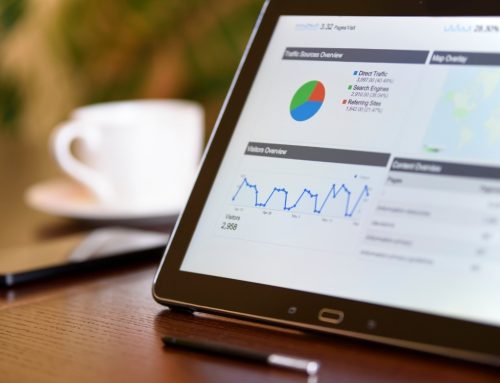In a world oversaturated with digital noise, brands are under pressure to do more than simply market — they must deliver timely, relevant, and personalised experiences at scale. That’s where a marketing automation agency steps in. These specialists bring the tools, strategy, and expertise needed to unify campaigns across platforms, streamline workflows, and ensure every message lands at the right time, in front of the right audience.
While many businesses use marketing automation tools in-house, working with an agency provides a distinct edge: deep technical proficiency, cross-platform experience, and a strategic approach tailored to real-world outcomes. Whether it’s nurturing leads, segmenting audiences, or optimising the entire sales funnel, a marketing automation agency ensures every campaign is engineered for performance.
In this blog by Smart Digitants, we’ll break down the multifaceted role of a marketing automation agency, and how it drives real business impact — from operational efficiency to long-term growth.
Understanding the Basics of Marketing Automation
Before unpacking the full role of a marketing automation agency, it’s important to understand the foundation they build upon. Marketing automation is not just about setting up email sequences or scheduling social media posts — it’s a strategic framework that leverages technology to execute complex marketing tasks with precision and efficiency.
What is Marketing Automation?
Marketing automation refers to the use of software platforms and technologies to automate repetitive marketing tasks, such as:
- Sending targeted email campaigns
- Managing customer data
- Segmenting audiences
- Scoring leads
- Running omnichannel campaigns
- Tracking user behaviour across digital touchpoints
These tools allow businesses to operate smarter by using real-time data to guide decisions and actions. Automation ensures consistency, eliminates manual bottlenecks, and enables personalised communication at scale.
Why Businesses Turn to Automation
For growing businesses, manual marketing execution quickly becomes unsustainable. Human teams struggle to keep up with the demand for customised messaging across multiple platforms, and opportunities for nurturing leads are missed due to lack of capacity or data visibility.
This is where marketing automation offers major advantages:
- Efficiency: Automates routine tasks to free up time and reduce human error.
- Scale: Supports growth by managing large volumes of leads and touchpoints.
- Data-driven insights: Delivers analytics and performance data in real-time.
- Personalisation: Enables one-to-one communication based on user behaviour.
- Integration: Syncs with CRM systems, analytics tools, and other platforms for a unified approach.
These benefits make automation not just a tactical tool, but a strategic asset. However, unlocking its full potential requires more than just choosing the right software — it requires expertise, execution, and ongoing optimisation.
How a Marketing Automation Agency Adds Strategic Value
Choosing the right software is just the beginning. The real challenge lies in using it effectively to meet business goals. This is where a marketing automation agency becomes indispensable. Their role is not limited to implementation — they act as strategic partners, aligning automation workflows with overarching business objectives.
Strategic Planning and Campaign Architecture
An experienced marketing automation agency begins with deep discovery — understanding your audience, business model, sales cycle, and value proposition. They then design a custom automation strategy that aligns with these elements. This often includes:
- Mapping the customer journey
- Defining lifecycle stages
- Setting campaign objectives (e.g. lead generation, re-engagement, upselling)
- Planning multichannel execution (email, SMS, social, ads, etc.)
- Creating performance benchmarks and KPIs
This strategic groundwork ensures that every automated action has intent — and measurable outcomes.
Technology Selection and Integration
There’s no one-size-fits-all tool when it comes to automation. A marketing automation agency helps you choose the right platforms based on your size, budget, and goals. Whether it’s HubSpot, Active Campaign, Marketo, Salesforce Pardot, or custom-built stacks — agencies understand the technical capabilities and limitations of each.
They also oversee integrations with:
- CRM systems
- Analytics platforms
- Content management systems
- Sales tools and e-commerce platforms
This technical alignment ensures data flows smoothly across your marketing ecosystem, enabling smarter decision-making and more responsive campaigns.
Content Strategy and Personalisation
Automation isn’t just about workflows — it’s about delivering the right content at the right time. A skilled agency develops a content strategy template tailored to each stage of the funnel, with automated triggers based on user behaviour, preferences, and engagement history.
This includes:
- Dynamic email content
- Behavioural retargeting ads
- Adaptive landing pages
- Smart CTAs (calls to action)
- Personalised product or content recommendations
- Data Driven content marketing
By merging content creation with automation logic, agencies ensure your messaging feels human — not robotic — while still operating at machine speed.
Testing, Optimisation, and Reporting
An automation strategy is never “set and forget.” A marketing automation agency continuously monitors campaign performance, runs A/B tests, and refines flows to improve ROI. They deliver clear reporting dashboards, making it easy for clients to see what’s working — and where to pivot.
Metrics typically tracked include:
- Open rates, click-through rates, and conversion rates
- Lead scoring and qualification patterns
- Drop-off points in customer journeys
- ROI from each channel or touchpoint
This level of data-driven optimisation turns automation from a basic utility into a competitive advantage.
Key Services Offered by a Marketing Automation Agency
A marketing automation agency doesn’t just manage tools — it orchestrates strategy, execution, and continuous refinement. Below are the essential services you can expect from a top-tier agency, each focused on streamlining processes, increasing engagement, and accelerating growth.
1. Campaign Automation and Workflow Design
At the heart of any marketing automation system is a series of logic-based workflows. These are the sequences that determine what happens after a user takes an action — whether it’s opening an email, downloading a whitepaper, or abandoning a shopping cart.
Agencies design these workflows to:
- Nurture leads through the funnel
- Re-engage inactive users
- Trigger personalised offers
- Move prospects closer to conversion
They use a combination of email, SMS, push notifications, and retargeting ads to keep prospects engaged without manual intervention.
2. Lead Management and Scoring
Not all leads are equal — and automation can help prioritise them. Agencies create lead scoring models that assign value based on behaviours, demographics, or buying signals. This enables:
- Sales teams to focus on high-value prospects
- Automated nurturing for lower-scoring leads
- Personalised messaging based on buyer intent
By syncing lead scores with CRM systems, agencies ensure sales and marketing alignment — reducing friction and improving close rates.
3. CRM Integration and Data Unification
One of the most overlooked — yet most critical — services a marketing automation agency offers is CRM integration. When your marketing platform talks seamlessly with your CRM, the result is a unified view of the customer journey.
Agencies ensure:
- Clean data migration
- Real-time sync between systems
- Segmentation based on CRM fields
- Closed-loop reporting for marketing attribution
This empowers businesses to create highly segmented campaigns, automate sales handoffs, and prove ROI with end-to-end visibility.
4. Email Marketing Automation
Despite being one of the oldest digital channels, email remains a powerhouse when used strategically. Agencies design and execute:
- Welcome sequences
- Behaviour-triggered emails
- Re-engagement campaigns
- Event-driven notifications
- Drip campaigns for nurturing
They also optimise for deliverability, mobile responsiveness, and A/B testing to maximise engagement rates.
5. Customer Journey Mapping
Effective automation hinges on a clear understanding of how prospects move through your funnel. Agencies create detailed journey maps that visualise each touchpoint — from first interaction to final conversion and beyond.
This allows for:
- Precise messaging based on lifecycle stage
- Timely interventions (e.g. reminders, upsells, satisfaction surveys)
- Stronger retention and post-sale engagement
Journey mapping helps businesses shift from a fragmented marketing approach to a cohesive, experience-driven strategy.
6. Conversion Rate Optimisation (CRO)
A well-automated campaign can still underperform if landing pages, CTAs, or funnels are poorly optimised. Many agencies offer CRO services to refine:
- Page layouts and content hierarchy
- Form design and user flows
- Mobile UX and page speed
- CTA placement and copy
They use heatmaps, analytics, and A/B testing tools to turn insights into actions — ensuring every automation flow has a strong destination.
7. Analytics, Reporting, and ROI Tracking
Performance visibility is critical. Agencies set up dashboards that offer real-time tracking of key KPIs, including:
- Lead generation volume
- Campaign engagement metrics
- Conversion rates across channels
- Funnel velocity
- Revenue attribution by campaign
With proper analytics frameworks in place, a marketing automation agency transforms raw data into actionable insights — helping you make smarter decisions faster.
Benefits of Hiring a Marketing Automation Agency

Bringing in a marketing automation agency is not merely about outsourcing tasks — it’s about adding strategic firepower, improving campaign performance, and freeing internal teams to focus on core business priorities. Here are the top benefits organisations experience when they engage a specialised agency.
1. Accelerated Implementation and Time-to-Value
Marketing automation platforms can take months to set up correctly — and longer to optimise. Agencies fast-track this process by:
- Implementing best practices from day one
- Avoiding common technical pitfalls
- Pre-building workflows and templates
- Streamlining integrations with your existing tech stack
The result is a faster time-to-value. Instead of spending quarters learning by trial and error, businesses start seeing results in weeks.
2. Access to Cross-Industry Expertise
Agencies work across multiple clients, industries, and campaign types. This gives them a unique vantage point — they know what works, what doesn’t, and how to adapt strategies based on market conditions.
This insight helps your business:
- Avoid siloed thinking
- Leverage proven techniques from other verticals
- Innovate based on current digital trends
- Stay ahead of the competition
Whether you’re in B2B SaaS, e-commerce, healthcare, or professional services, a seasoned agency brings hard-won experience to the table.
3. Cost Efficiency and ROI Focus
Hiring and training an in-house team of automation specialists can be expensive and slow. Agencies provide access to:
- Certified platform experts
- Strategy consultants
- Technical integrators
- Copywriters and CRO specialists
—all at a fraction of the cost of building a full-time internal department. They also work under defined scopes, timelines, and KPIs, ensuring a clear ROI path from day one.
4. End-to-End Campaign Ownership
Instead of managing multiple freelancers or departments, businesses can rely on a single point of accountability. A marketing automation agency handles:
- Planning
- Design
- Execution
- Testing
- Reporting
This holistic ownership removes friction, reduces errors, and ensures every piece of the puzzle works together — from lead magnet to final conversion.
5. Continuous Optimisation and Iteration
The best campaigns are never static. Agencies monitor performance constantly and make micro-adjustments that add up to major gains. Their ongoing services typically include:
- A/B and multivariate testing
- Funnel performance reviews
- Audience segmentation refinement
- Content refresh cycles
- CRM and platform audits
This commitment to improvement helps businesses adapt to changing user behaviour, industry trends, and internal growth targets.
6. Reduced Risk of Misuse or Underutilisation
Many companies invest in marketing automation tools but only use a fraction of their capabilities — or worse, set them up incorrectly. Agencies help you:
- Maximise the ROI of every feature
- Avoid poor configurations that cause deliverability issues
- Stay compliant with data privacy regulations (e.g. GDPR)
- Implement secure and scalable systems
This lowers operational and reputational risk while ensuring your tech investment pays off.
When Do You Need a Marketing Automation Agency?
Not every business needs a marketing automation agency from day one — but there comes a point when internal teams hit their limits, and automation done right becomes mission-critical. Here are common signs that it’s time to bring in expert support.
1. You’ve Outgrown Manual Marketing Efforts
If your team is still manually sending emails, tracking leads in spreadsheets, or juggling disjointed campaign tools, you’re likely burning time and missing opportunities. A marketing automation agency helps you:
- Eliminate repetitive tasks
- Set up scalable systems
- Create consistent customer experiences
- Use data to make informed marketing decisions
This shift is especially vital for companies scaling quickly or entering new markets.
2. Your Lead Nurturing is Inconsistent or Ineffective
Generating leads is only half the battle — nurturing them toward conversion is where automation shines. If your team struggles to follow up consistently or fails to deliver timely, relevant content, you’re likely leaking revenue.
An agency builds lead nurturing sequences that:
- Adapt to user behaviour and preferences
- Progressively move leads through the funnel
- Engage different buyer personas effectively
- Trigger sales involvement at the right time
This prevents hot leads from going cold and increases overall conversion rates.
3. Your Campaign Data is Scattered and Inaccessible
If your marketing metrics are split across platforms — email open rates here, CRM data there, analytics somewhere else — you’re operating in the dark. A marketing automation agency creates a centralised reporting structure that provides:
- Real-time visibility into campaign performance
- Attribution across the full customer journey
- Unified dashboards for executives and teams
- Data-driven insights for continuous improvement
When insights are centralised, strategy becomes sharper.
4. You’re Investing in Tools but Not Seeing ROI
Many businesses invest in platforms like HubSpot, Salesforce, Marketo, or Klaviyo — only to realise later they’re using 10–20% of what’s available. Agencies help unlock the full value of these tools by:
- Customising setup for your business model
- Training your team for long-term success
- Automating overlooked tasks
- Developing ROI-positive use cases
If your tech stack feels like a sunk cost, a good agency can turn it into an asset.
5. You’re Preparing for a Major Launch or Campaign
Launching a new product, entering a new market, or rebranding? These are ideal times to bring in a marketing automation agency. They help with:
- Strategic planning under tight timelines
- Building high-converting funnels
- Syncing content with automation
- Monitoring performance from day one
Instead of scrambling during a high-stakes period, you gain an experienced team focused on flawless execution.
6. You’re Scaling Rapidly or Experiencing Growth Bottlenecks
Rapid growth often reveals process breakdowns. Sales teams can’t keep up, leads fall through the cracks, and campaign personalisation suffers. Agencies help businesses scale by:
- Automating onboarding sequences
- Streamlining lead qualification
- Enabling advanced segmentation
- Connecting sales and marketing systems
If growth is straining your internal resources, an automation partner becomes essential.
Choosing the Right Marketing Automation Agency
Not all agencies are created equal. Choosing a marketing automation agency is a strategic decision that can determine how effectively your campaigns perform and how scalable your systems become. Here’s how to evaluate your options and make the right choice.
1. Look for Platform Expertise
Your chosen agency should have deep experience with your preferred or existing marketing automation platform. Whether you use HubSpot, Salesforce Marketing Cloud, Marketo, ActiveCampaign, Klaviyo, or custom-built stacks — the agency must offer:
- Certified consultants or accredited experts
- A proven track record of implementation and optimisation
- Knowledge of platform-specific limitations and capabilities
- Case studies with measurable success metrics
A mismatch between agency expertise and your tech stack can lead to wasted time and poor system performance.
2. Assess Strategic Thinking, Not Just Execution
Avoid agencies that simply offer “done-for-you” setups without a broader strategy. The best agencies approach automation holistically — aligning workflows with business goals and customer journeys. Ask them:
- How do you approach lifecycle marketing?
- What’s your process for mapping campaigns to funnel stages?
- How do you tailor automation to different personas or verticals?
Strategic alignment ensures that automation isn’t just efficient — it’s effective.
3. Check for Data and CRM Integration Capabilities
A true marketing automation agency won’t treat your CRM as an afterthought. Since automation relies on data, the agency must be skilled in:
- CRM syncing and data structure
- Custom field mapping
- Lead scoring and lifecycle stages
- Setting up automated triggers from CRM events
Ask to see examples of past integrations and what tools they typically work with (e.g. Salesforce, Zoho, HubSpot CRM, Pipedrive, etc.).
4. Review Content and Creative Support
Automation is only as strong as the content it delivers. The agency should offer — or closely collaborate with — specialists in:
- Email copywriting
- Landing page design
- Offer creation (eBooks, webinars, free trials)
- Personalised content strategies
Generic content kills performance. You want an agency that builds automation around high-value, audience-specific messages.
5. Evaluate Their Reporting and Communication Style
Transparency matters. Ask how the agency measures success, how often they report, and what’s included in performance reviews. A quality agency will offer:
- Real-time dashboards
- Monthly or campaign-based reports
- Recommendations based on data trends
- Clear timelines and deliverables
You should feel confident that you’re always informed — not chasing updates.
6. Seek Cultural and Operational Fit
Beyond skills and experience, your marketing automation agency should match your working style. Consider:
- Do they work as an extension of your team?
- Are they proactive or reactive in problem-solving?
- Can they scale with your business as needs evolve?
- Do they offer flexible contracts or rigid retainers?
A strong cultural fit leads to a smoother collaboration and better long-term results.
Common Challenges Solved by a Marketing Automation Agency
Businesses often underestimate the complexity of marketing automation — or overestimate their internal capacity to manage it effectively. A marketing automation agency solves these problems with precision, scalability, and strategic insight.
1. Inconsistent Lead Follow-Up
Manual follow-up leads to delays, missed opportunities, and disjointed customer experiences. A marketing automation agency eliminates these gaps by:
- Automating lead nurturing sequences
- Sending personalised follow-ups based on user behaviour
- Aligning triggers with sales team actions
- Ensuring timely responses across the customer journey
2. Poor Campaign ROI
Many brands run campaigns with no clear benchmarks or attribution models. A marketing automation agency builds out robust frameworks for:
- ROI tracking by campaign or channel
- Real-time performance dashboards
- Funnel analysis and optimisation
- Attribution modelling to identify top-performing touchpoints
This enables businesses to double down on what works and cut waste fast.
3. Low Email Engagement
Weak subject lines, generic messaging, and unsegmented lists often lead to poor open rates and click-throughs. An agency fixes this by:
- Segmenting your audience by behaviour and demographics
- Writing data-backed, personalised content
- Running A/B tests for subject lines, copy, and timing
- Optimising send frequency and deliverability settings
The result? Higher engagement, more conversions, and a stronger sender reputation.
4. Fragmented Tech Stack
If your CRM, email tool, ad platform, and analytics aren’t connected, your campaigns will suffer. A marketing automation agency provides:
- End-to-end system integration
- Unified customer data views
- Syncing between platforms (e.g., HubSpot + Salesforce + Google Ads)
- Automation logic that works across channels
This connectivity transforms isolated actions into cohesive journeys.
5. Lack of Internal Expertise
Marketing automation is technical and constantly evolving. Agencies bring:
- Certified experts in multiple platforms
- Deep knowledge of workflow logic and campaign sequencing
- Up-to-date practices for privacy, compliance, and optimisation
- Strategic advisors who tie automation to business goals
Rather than hire and train internally, businesses can scale faster with expert support.
*Frequently Asked Questions
What does a marketing automation agency do?
A marketing automation agency helps businesses plan, implement, and optimise automated marketing strategies. This includes setting up workflows, segmenting audiences, integrating platforms (like CRMs), writing automation-friendly content, and continuously refining campaign performance through data analysis.
The goal of a marketing automation agency is to increase campaign efficiency, improve customer experience, and boost revenue by leveraging automation technology in a strategic and measurable way.
Why should I hire a marketing automation agency instead of doing it in-house?
Hiring a marketing automation agency gives you access to platform-certified experts, strategic marketers, and technical specialists — all under one roof. Most in-house teams lack the time, tools, or experience to set up automation properly or maintain performance over time.
A marketing automation agency delivers faster execution, lower error rates, and higher ROI by applying proven frameworks and working across multiple verticals.
What platforms do marketing automation agencies typically work with?
A marketing automation agency often works with leading platforms such as:
- HubSpot
- Salesforce Marketing Cloud
- Marketo
- ActiveCampaign
- Klaviyo
- Pardot
- Mailchimp (for startups)
They can also build custom integrations or automation using tools like Zapier, Integromat, and APIs to ensure full system sync. The right agency will recommend platforms based on your budget, business model, and goals.
How do marketing automation agencies personalise campaigns?
A marketing automation agency uses behavioural data, segmentation, and dynamic content blocks to tailor messaging at scale. This means users receive emails, ads, or landing pages based on:
- Pages they visited
- Emails they opened
- Products they viewed
- Where they are in the customer journey
This advanced personalisation helps increase engagement and improve the performance of every campaign.
What results can I expect from working with a marketing automation agency?
While results depend on your goals and industry, a good marketing automation agency typically delivers:
- Higher conversion rates
- Increased lead-to-customer velocity
- Better customer retention
- More efficient lead qualification
- Unified analytics and reporting dashboards
- Improved ROI from existing marketing spend
You can expect both quick wins and long-term gains as workflows mature and more data becomes available.
Can a marketing automation agency help with GDPR compliance?
Yes. A qualified marketing automation agency ensures your workflows are compliant with data privacy laws such as GDPR. They help set up:
- Double opt-in processes
- Cookie and tracking permissions
- Data storage policies
- Consent management systems
This not only avoids penalties but also builds trust with your audience.
What industries benefit the most from a marketing automation agency?
Nearly all industries can benefit from a marketing automation agency, but it’s especially valuable for:
- B2B SaaS
- E-commerce
- Professional services
- Education and training
- Healthcare and wellness
- Real estate and financial services
Any business with a complex customer journey or high-value lifecycle can drive measurable impact from professional automation services.
Ready to Work Smarter, Not Harder?
If your campaigns are underperforming, your tools feel disconnected, or your team is stretched too thin — it’s time to bring in the right support.
Smart Digitants is a results-driven marketing automation agency that helps businesses like yours streamline processes, personalise engagement, and scale with confidence. Whether you’re just getting started or ready to take your automation to the next level, we’ll help you unlock the full potential of your tech stack.
Let’s build smarter campaigns — together
Our Content Writing Team at Smart Digitants is a group of dedicated professionals, passionate about creating high-quality, engaging content.

